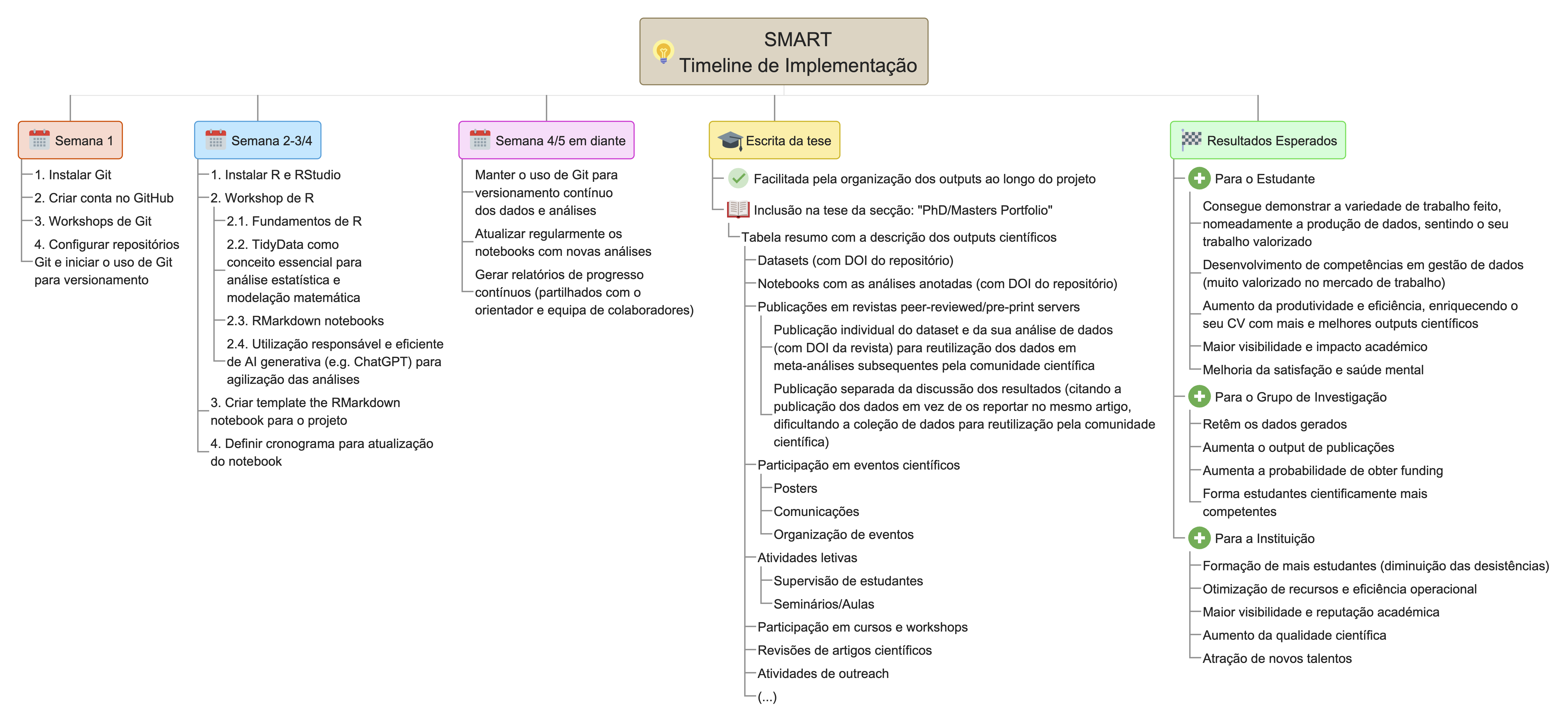Open Science
SMART
Skills and Methods to Achieve Reproducible Theses
Characterization of the Practice
The SMART method (Skills and Methods to Achieve Reproducible Theses) is designed to ensure good scientific data management and the reproducibility of results in postgraduate theses. It addresses the need to organize thesis project data in a centralized repository, perform regular backups, create continuous progress reports, and keep detailed records of data analyses.
Objectives and Goals
- Ensure scientific data organization and accessibility by storing data in a central repository.
- Implement consistent backup procedures to prevent data loss.
- Promote transparency and continuity in data analysis through detailed documentation.
- Facilitate continuous project progress evaluation via regular updates and feedback.
Implementation
SMART has been implemented in four thesis projects at UAlg using tools like Git, GitHub, R, and RMarkdown. Key actions include setting up GitHub accounts, conducting workshops, creating RMarkdown templates, and maintaining continuous documentation and progress tracking (See implementation schedule below - In portuguese only).
Stakeholder Involvement
The practice benefits postgraduate students and their advisors by providing a structured framework for scientific projects, improving productivity, and ensuring continuous project monitoring. It has received positive feedback from all involved parties.
Results and Impacts
SMART has significantly improved data organization and accessibility, increased transparency in analyses, and facilitated continuous project monitoring. It has resulted in completed theses, publications in international journals, and the development of R packages and markdown notebooks.
Sustainability and Transferability
SMART is sustainable due to its use of free tools and promotes a culture of scientific transparency and reproducibility. It is adaptable to different research contexts and disciplines, enhancing UAlg’s academic reputation and operational efficiency.
Innovation and Continuous Improvement
SMART introduces a systematic approach to data management and scientific reproducibility, addressing the previously scattered and vulnerable data storage practices. It has been evaluated and improved through continuous feedback, showing positive results and enthusiastic adoption.
Contribution to Sustainable Development Goals (SDGs)
The practice contributes to:
- Quality Education (Goal 4) by enhancing technical and professional skills.
- Industry, Innovation, and Infrastructure (Goal 9) by strengthening scientific research and technological capabilities.
Implementation schedule
Portuguese only
